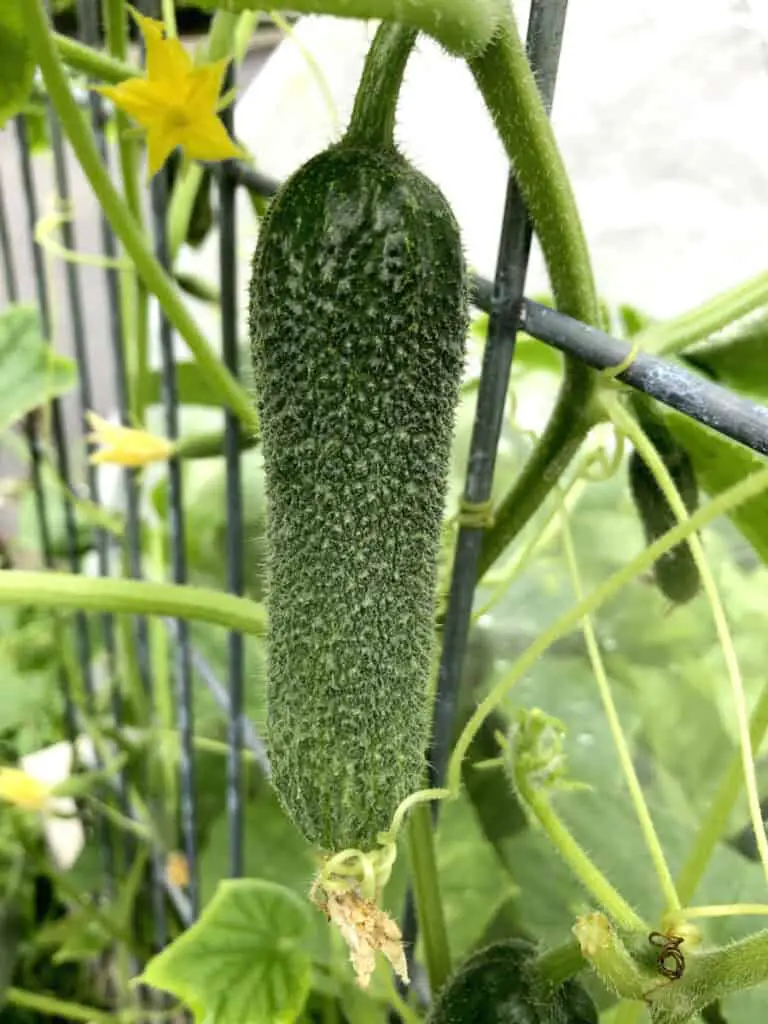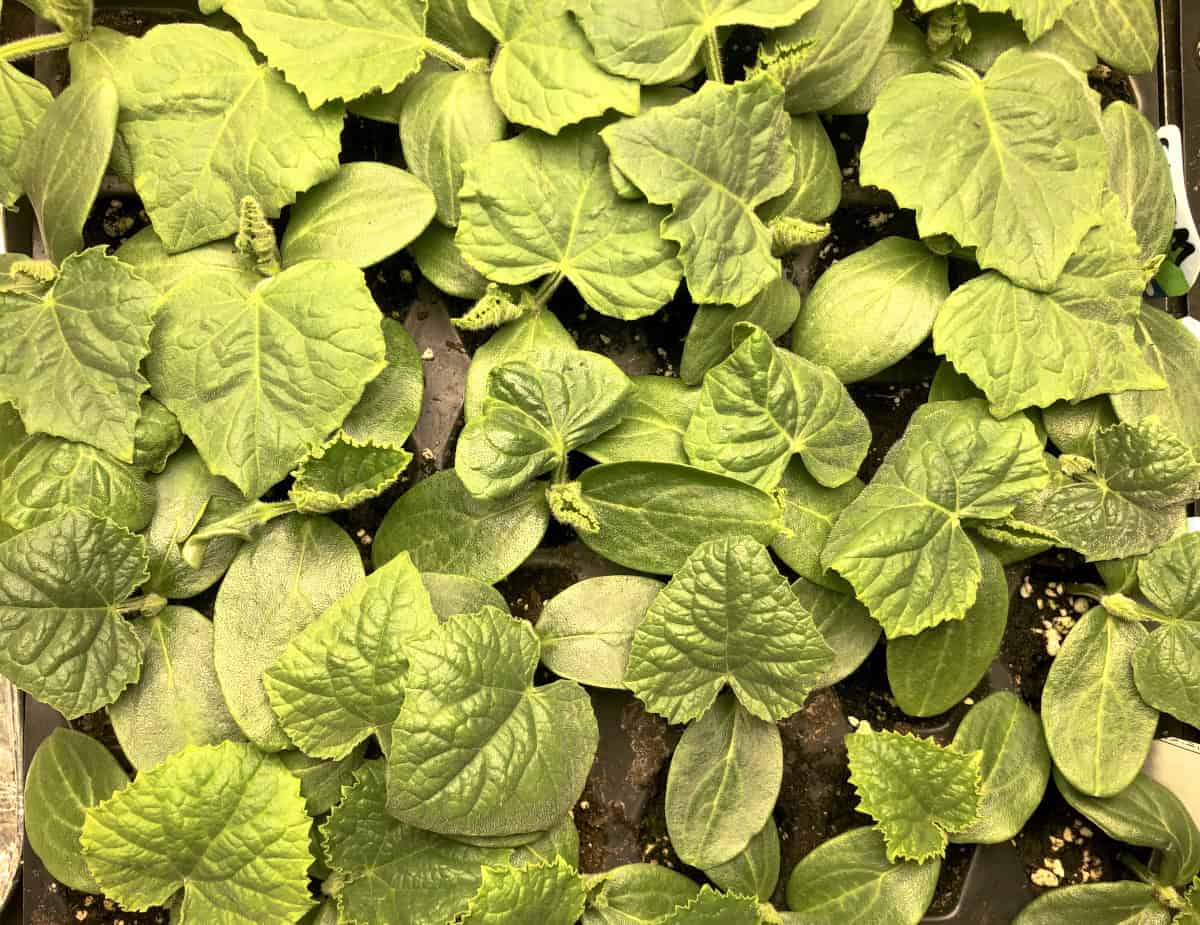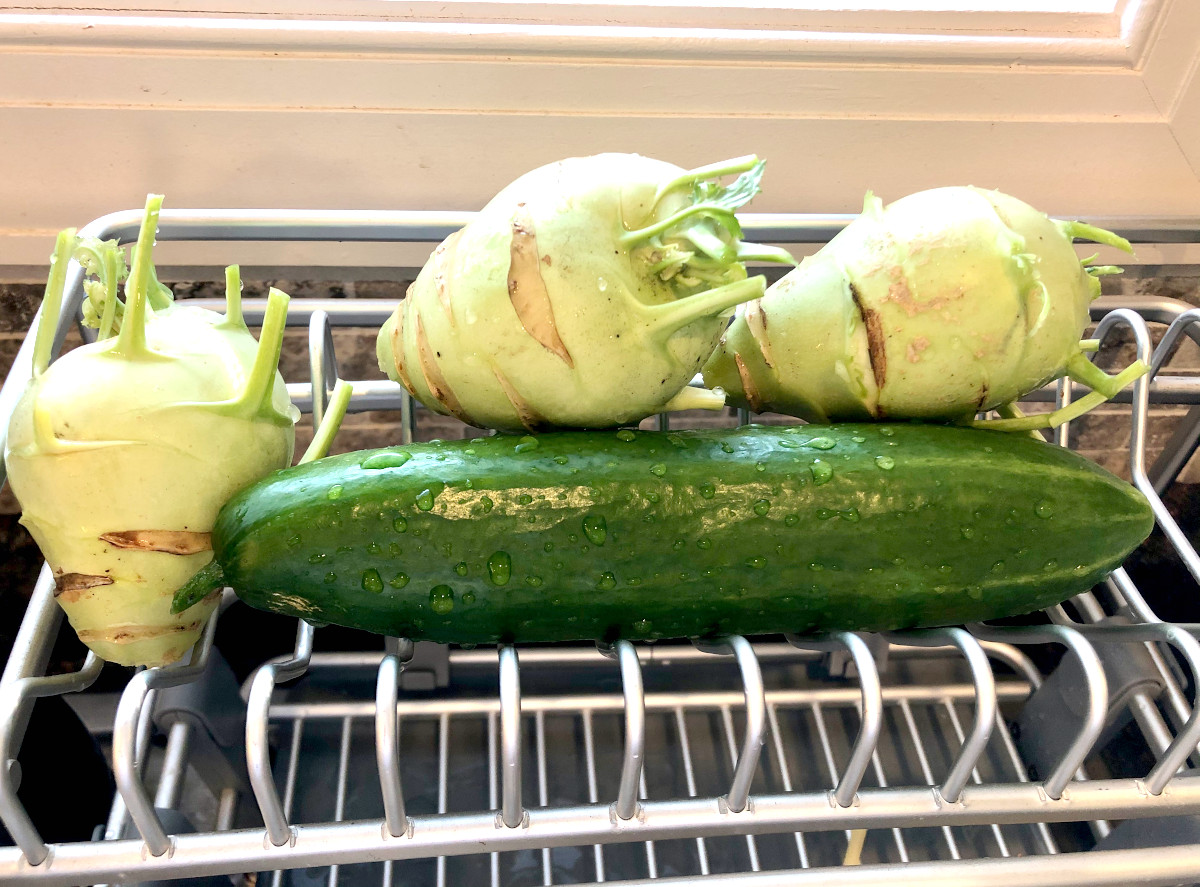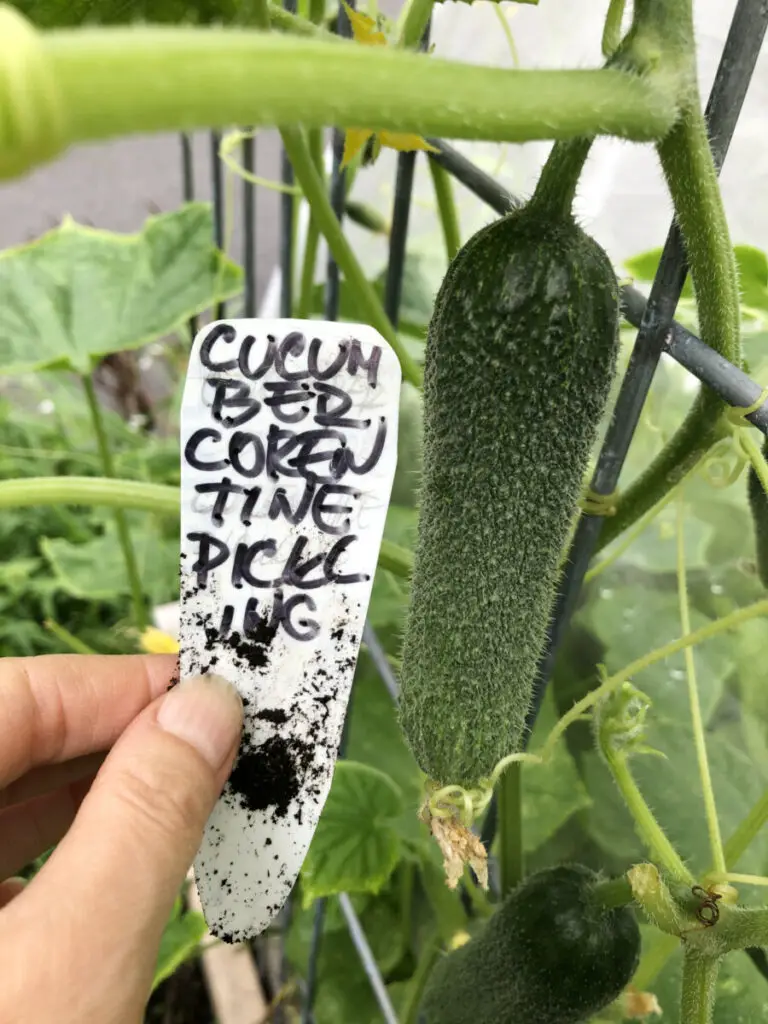Cucumbers are one of the most popular crops to grow in home gardens. Cucumbers are high-yielding plants and provide very versatile fruit! Cucumbers are great eaten fresh, pickled, fermented, and even added to smoothies, tossed in drinks, and in salads! They are a refreshing juicy treat that everyone loves.
Cucumbers can be planted directly outdoors in the ground after the last frost date or can be started indoors before the last frost date. Plant the cucumbers’ seeds if starting outdoors, or plant cucumber seedlings outdoors once the temperatures reach the mid-70sF. If trellised, space the cucumbers 12 inches apart. Choose a sunny location with at least 8 hours of sun, the more sun the better. Ensure the soil is well draining and fertile.

What month do you plant cucumber?
Start the cucumber seeds indoors in late April. They only need to be indoors for about 4 weeks, as they sprout and grow quickly. Sow seeds directly in the garden once the soil is warmed up, the danger of the last frost has passed and the weather has reached mid-70sF. Check your hardiness zone for the last frost date.

Each hardiness zone has different first and last frost dates. A hardiness zone is a geographic area defined by ten degrees of temperature difference. Each hardiness zone is also divided into A and B segments. To know your hardiness zone is to know when it is safe to plant cucumbers outdoors when it is safe. Once I saw that many new and even experienced gardeners struggle to determine their hardiness zone and have trouble choosing the right plants for their gardens, I decided to write a whole article on the hardiness zones. In the article you will find out what the hardiness zones mean, why it is important for gardeners to know their hardiness zone, how to choose the right plants for your garden and microclimate. Visit What do hardiness zones mean and how to determine yours.
Do I have to harden off cucumber seedlings before transplanting?
Yes, if the cucumber seedlings were grown indoors, they need to be hardened off before being transplanted outdoors into their permanent location. In fact, all seedlings that were grown indoors need to be hardened off before transplanting them outdoors.
I see the question of whether the seedlings need to be hardened off every year over and over again asked by the home gardeners. Yes, it is best to harden off all seedlings that were grown indoors under grow lights, or in greenhouses. In summary, all seedlings that were not exposed to direct sun and the direct impact of the weather changes need to be hardened off.
The purpose of hardening off the seedlings is to prepare them for the direct sun without being burned by it, and to get them used to outdoors, unprotected weather conditions. Remember seedlings were in a controlled environment till then. Once they are planted outdoors, they are in an uncontrolled environment. By hardening them off, we help the tender seedlings get hardened and transition them to the uncontrolled environment to thrive in them.
If the seedlings have not been hardened off before transplanting, they might not only get transplant shock but also sunburn and can get shock from cold and the wind. The seedlings might recover after all the sock, but their growth and fruiting will be set way back even by several weeks. Instead of growing and fruiting, they will have to put all their energy into recovering and you will lose time.
Save yourself all that trouble, and harden off the seedlings well before transplanting them outdoors. A proper hardening of the plants always pays off!
TIP: For more in-depth information and a good read, about the hardening of the plants, I invite you to visit my other two articles dedicated to the hardening of the plants. Visit, What is plant hardening?, and How to harden off seedlings. There is no reason not to know how to harden off the plants properly, and no reason for you not to know how to do it. After reading these two articles, you will gain a solid knowledge of how to transition your seedlings into an uncontrolled environment outdoors.
Where is the best place to plant cucumbers?
Plant cucumbers in a sunny location. If they get 6 hours of direct sun they do alright, but 8 hours and more is the best for production. Cucumbers are a warm-weather crop, meaning they like warm weather and plenty of direct light.

What is the best soil for cucumbers?
Plant cucumbers in fertile, loose, and well-draining soil. Cucumbers are very productive and therefore like to be well-fed. Ensure the soil is fertile by preparing the soil prior to planting by dressing it with about 2 inches of aged animal manure or compost. Work the manure or compost to a depth of 6-8 inches.
I use this fertilizer for my garden on all my vegetables and fruit. It is a one-gallon concentrate and I only use 10 mil per gallon of water for regular fertilizing, so it will go a long, long way.
How to water cucumbers
Cucumbers like moist soil, but do not like to sit in water. Ensure the plants are well watered and moist, and drain well. The fruit of a cucumber is juicy, that is where all the water is needed. Water cucumber plants at least once a week in in-ground or raised-bed gardens, more often if the cucumbers are planted in containers. Check the soil moisture using your finger. Stick the index finger in the soil in which the cucumber is planted, if the soil feels dry and crumbly, the plant needs good watering. Water at least 1 inch a week. Water more often if the weather or climate is hot and dry. Always water your plants deeply.
As a rule of thumb, a garden should receive about 1 inch of water per week. I have seen many gardeners asking what it actually means and how to measure it. To dispel all the doubts about whether you water your garden and plants in it properly, I have written several articles dedicated to watering, which I have listed below, for you to enjoy reading and gain much knowledge. I am sure you might raise an eyebrow or a two when reading and actually measuring and checking the water your garden gets.
How and when to water vegetable garden
Should you water garden in the morning or at night?
When you should not water your garden
Is it better for cucumbers to grow up or on the ground?
Cucumbers can grow both ways, up the trellis or on the ground. However, growing cucumbers up the trellis are much more beneficial for the plant and the harvest. Trellised cucumber plants are easier to harvest, and they are less susceptible to diseases and pests. Trellising cucumber plants is overall a better and more beneficial way of growing them. Cucumber plants have tendrils that allow them to grab the trellis whether they grow up the fence, wire, or wooden trellis or tall cages. Cucumbers are vining plants and they climb very well up the structures.

If the cucumber plant and its fruit grow and lie on the ground it attracts slugs and other ground pests to its leaves and fruit. These ruin the plant and the crop. The plant can also sit in hidden spots of water, or damp spots which can encourage disease or mold to grow and spread, which can kill the plant and the fruit.
I grow cucumbers on any trellises I can get. I use cattle panels standing upright as a trellis, and even tomato cages and wrap the cucumber plants around the tomato cages to grow. The fruit then hangs downwards nicely and the harvest is a breeze.
Do cucumbers attract any pests?
Oh, yes, they do! The most common pests that are attracted to cucumber plants are cucumber beetles, then aphids, thrips, squash bugs, whiteflies, and caterpillar-type pests.
Growing up in central Europe I had no idea there is such a thing as a cucumber beetle or a squash bug! I had no idea cucumbers attract any pests until I grew them here. Your location and climate will influence what type of pests your cucumber plants will attract the most.
In my current climate, I get cucumber beetles and squash bugs. They appear suddenly once the plants are well established and fruiting. They literary suck out the life of the plant and the next day the plant is dead. I hand-pick the bugs in the morning and at lunchtime. The bugs spread prolifically and last only about two weeks but they do so much damage. They appear in this order, the yellow cucumber bugs come first, and when they are gone the squash bugs appear. I fight them for about four weeks. I lost many cucumber plants last year due to these two pests. I mostly handpick them and smash the eggs and clumps of young ones if I find them. I also sprayed them with water mixed with soap, baking soda, and diatomaceous earth. It did not work as well as I wished, as it did not eliminate all the bugs, and new ones were coming regularly. Handpicking them and smashing them worked best. This year, I am planning to use cucumber beetle traps and stainless-steel dredges like this one to sprinkle diatomaceous earth directly on the plants and bugs. I am planning to use this trap to lure and catch garden bugs. I might even make some yellow jug or cup traps similar to this one.
I like to grow slicing burpless cucumbers for salads or eat them fresh. And I always grow pickling cucumbers, especially self-pollinating ones. Despite all the pests I have to fight while growing cucumbers they are a must in my garden just because cucumbers in general are very productive!
I invite you to share with us what are your favorite cucumbers that are a must in your garden.
What do hardiness zones mean and how to determine yours.
How and when to water vegetable garden
Should you water garden in the morning or at night?

